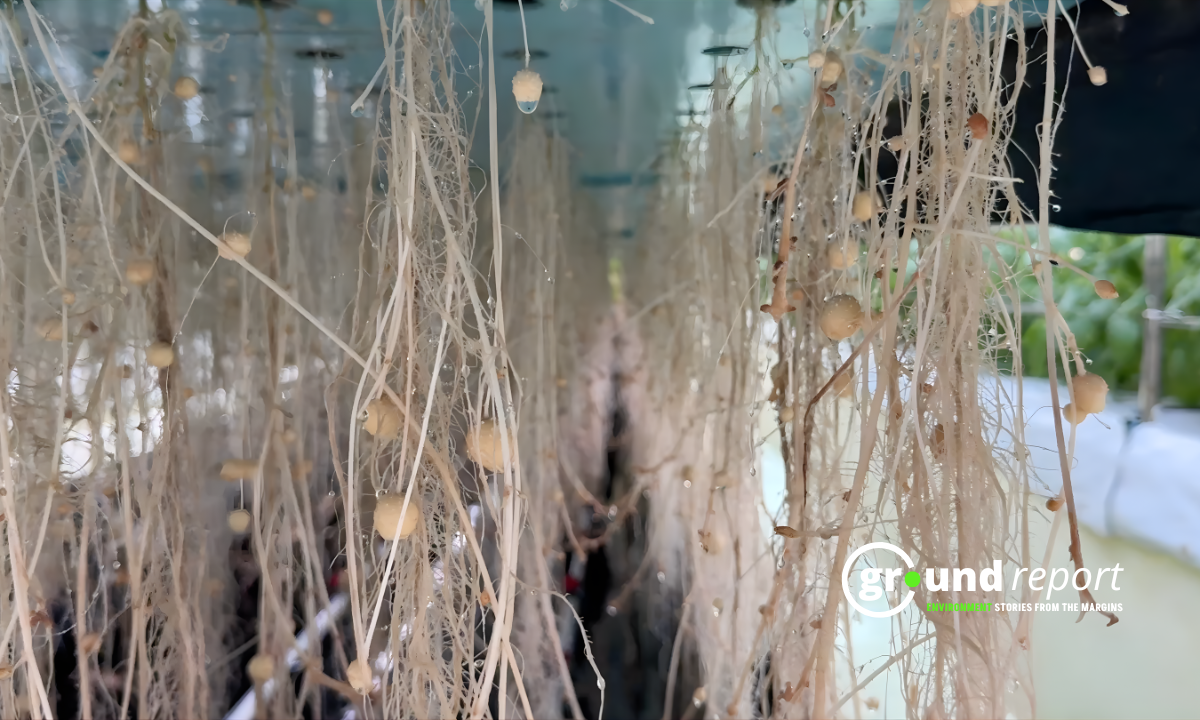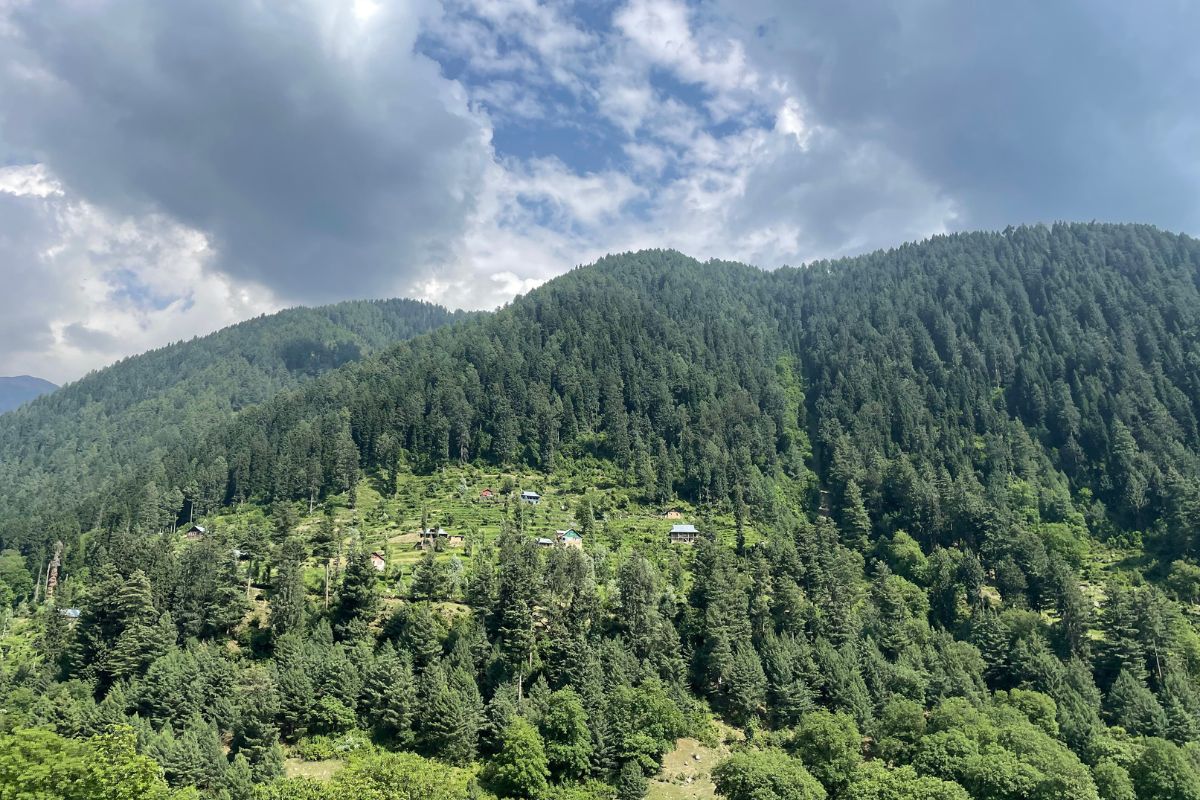Read in Hindi | On August 15, 2022, Prime Minister Narendra Modi addressed the nation from the iconic Red Fort in New Delhi. In his speech, he highlighted the importance of organic farming, declaring it as our collective duty. The Independence Day’s speech of Modi echoed his prior appeals to promote organic farming, emphasising his deep-rooted commitment to the cause.
“Being a farmer and a son of the soil, I have no right to play with the health of the earth. Neither do I have any right to make this soil sick,” he remarked.
Currently, organic farming is done in 2.7 percent of the total agricultural area (net sown area), i.e. about 3.8 million hectares. However, this also includes 0.41 million hectares of natural farming. In the year 2020, India was ranked first in the world in terms of the number of organic farmers.
However, it is important to discuss how many farmers are benefited from the organic farming schemes in India? Are farmers getting any government support? Or are they relying solely on their own resources to save the soil from getting sick.
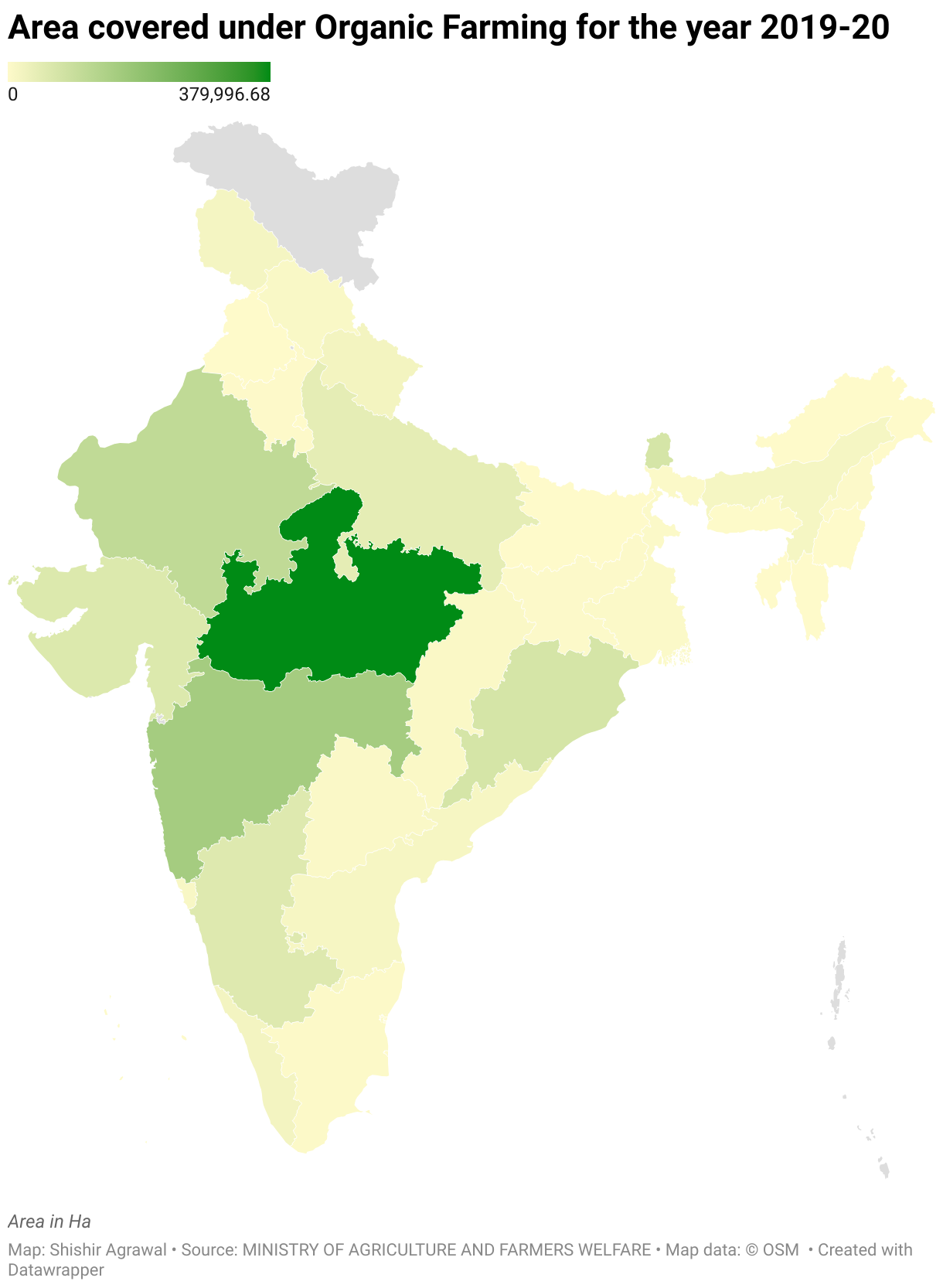
The Paramparagat Krishi Vikas Yojna (PKVY) was launched in 2015 as part of the Central Government’s ‘National Mission on Sustainable Agriculture‘ aiming to boost organic farming in the country. As a part of this scheme, the government claimed organic farming was being practised across 11.85 lakh hectares of land. The plan also had a target to incorporate an additional 6 lakh hectares between 2022 and 2025.
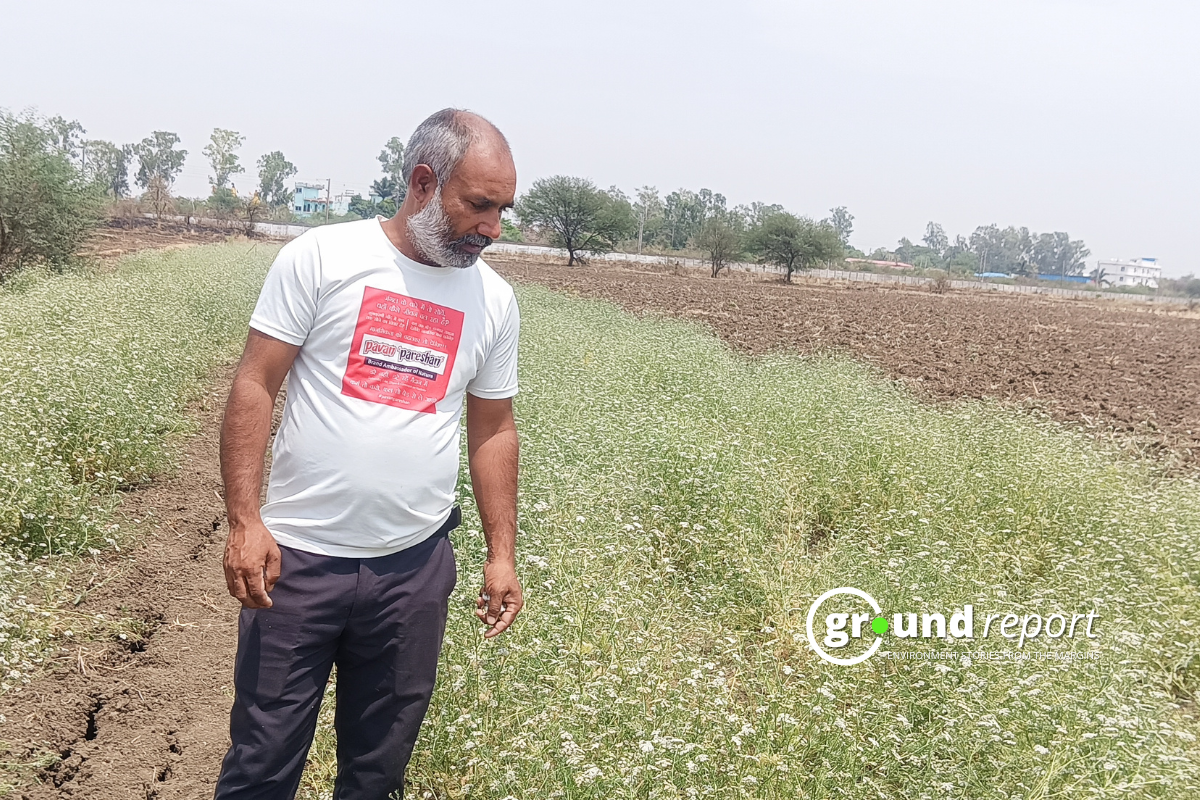
Meet Pawan Pareshan, of Obedullaganj in the Raisen district of Madhya Pradesh, he has been doing organic farming since 2017. Cultivating 4.5 acres of land, he grows a diverse range of vegetables and food crops. Pareshan is aware of the PKVY Scheme but has not received any benefits from it.
State of model organic clusters
As part of this scheme, the government aimed to establish 10,000 clusters nationwide, with each cluster covering an area of 20 hectares or 50 acres. Each cluster was slated to receive a total support of Rs 10 lakh for its farmer members. This support included Rs 31,000 per hectare to be provided directly to farmers through direct benefit transfer.
The initial initiative of this scheme involved the Model Organic Clusters Demonstration. Various government agencies, such as Krishi Vigyan Kendra and Farmer Producer Organization (FPO), were asked to showcase an exemplary cluster in a village each year. This demonstration included activities like organizing organic fairs, facilitating organic certification, and providing training and exposure visits.
Another organic farmer, Kripal Singh Verma from Kolas Kalan in the Sehore district, cultivates organic produce on his 15-acre land. He shares that no such activities were organized in his area. While government initiatives aimed to inspire more farmers to embrace organic farming, Verma remarks,
“Any farmer engaged in organic farming is doing so out of personal inspiration. Government schemes may come and go.”
However, according to the government’s claim, from 2019 to 2021, 411 Krishi Vigyan Kendras of the country have covered a total of 8 thousand 220 hectares of area through this activity.
Similarly, the second activity of this scheme involved establishing Adarsh Jaivik Farms. Under this initiative, at least three exemplary organic farms were to be developed to demonstrate the transition from conventional chemical-based farming to organic methods in government agricultural institutions.
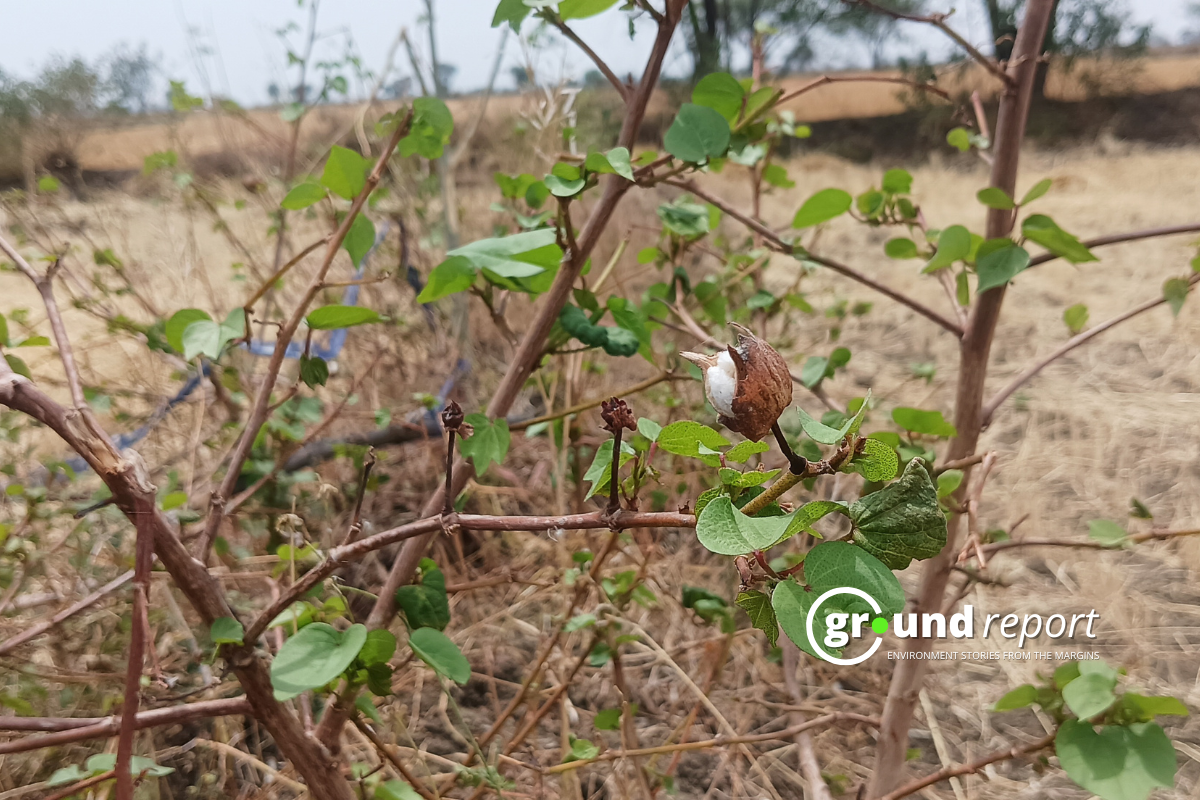
Challenges in organic farming
Farmer Pawan shares the challenges of organic farming while giving a tour of his farm located about 38 km from Bhopal.
“It was a difficult task for me to convince my family for organic farming,” he shares. He does farming on his father’s farm land for which he pays 25 thousand rupees rent to his father annually.
“My father wants a lot of produce but I grow many types of crops organically. In this way, only a little of each crop can be produced.”
Pawan sells his produce through acquaintances in nearby areas such as Bhopal and Narmadapuram. From preparing the fields for sowing seeds to selling the produce in the market, Pawan handles every aspect himself. When asked about benefiting from government schemes, he remarks,
“I’ve visited the government office numerous times, but I haven’t received any benefits from any scheme.”
‘Government is taking credit for our work’
Muniya Merscole is working to promote organic farming in Baigachak of Dindori district. She also helps people in creating indigenous seed banks. On 9 February 2023, Prime Minister Narendra Modi retweeted a story of DD News from his X account (formerly called Twitter). This story was about a woman named Lahiri Bai from Dindori.
During this, PM Modi wrote,
“Proud of Lahribai. She has shown amazing enthusiasm for Shri Anna. This will inspire others.”
Proud of Lahari Bai, who has shown remarkable enthusiasm towards Shree Ann. Her efforts will motivate many others. https://t.co/rvsTuMySN2
— Narendra Modi (@narendramodi) February 9, 2023
But Munia says that the seed bank that PM is talking about has been built by a collective of people from the village. Munia further shares that the government does not provide any support in setting up such seed banks.
“We do all the work and the government takes the credit for it,” she blames.
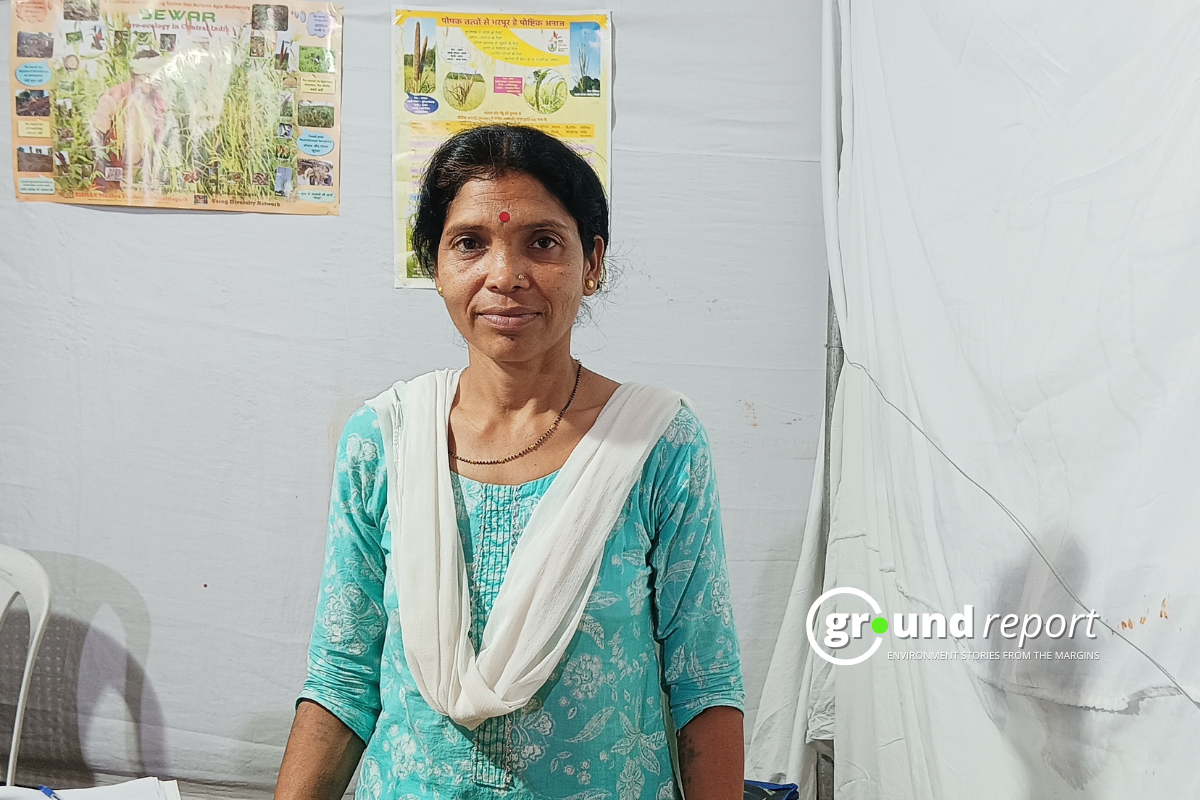
State of Farmer Producer Organizations
Muniya explains that Farmer Producer Organizations (FPOs) are established in the farmers’ name but are operated by someone else. Pawan, from Obedullaganj, admits he’s unaware of the FPOs operating in his village. Despite seeking information from the Agriculture Department, he received no clear answers.
In the year 2020, a scheme was brought by the Central Government to create 10 thousand FPOs across the country. For this, a budget of Rs 6,865 crore was also allocated by the government. According to the information given in Parliament in December 2023, out of 10 thousand, 7 thousand 597 FPOs have been established till then.
The government should provide a market
Organic farmers across the state collectively stress the importance of the government offering more market opportunities to boost organic farming. Munia shares her hopes, stating,
“Just as the government provides Minimum Support Price (MSP) for wheat and paddy, it should extend MSP to all millets. Additionally, initiatives should be taken to directly link farmers with international markets, rather than relying solely on advertisements.”
Meanwhile, the area under cultivation of millets in the country has increased. During 2013-14, it was 12.29 million hectares. Which increased to 15.48 million hectares in 2021-22. However, the data on how many farmers were directly linked to the international market is not in public knowledge.
Farmers unaware of Jaivik Kheti portal
The government also launched a Jaivik Kheti portal for the sale of organic products, serving as an e-commerce platform to provide a market for organic farmers. Reports indicate that as of February 2022, 5.56 lakh farmers had registered on this portal. Ground Report reached out to about 10 organic farmers in Madhya Pradesh regarding this portal, but none of them were aware of it. According to these farmers, they primarily built their customer base through their own efforts, utilizing personal contacts or social media. They expressed disappointment in the lack of government support.
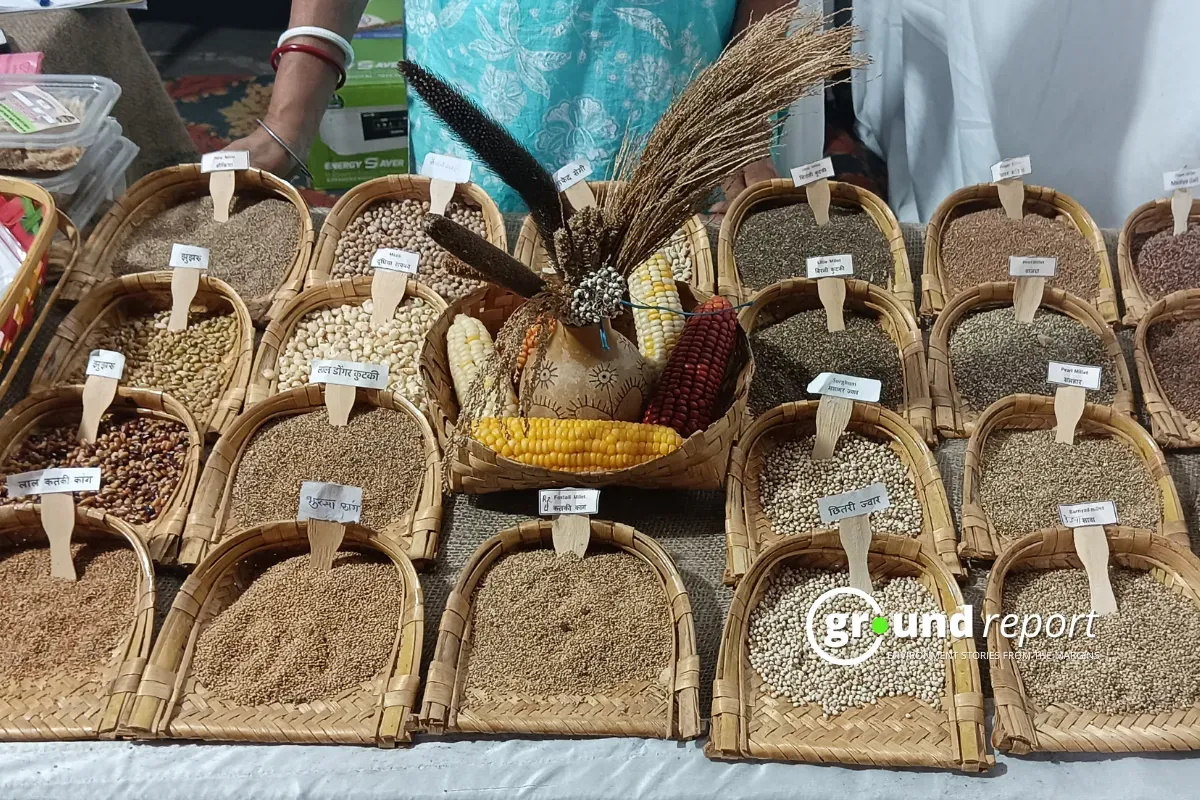
In terms of area, organic farming covers 2,15,626.65 hectares in Madhya Pradesh. However, the state’s implementation of the Traditional Agriculture Development Scheme is concerning. Despite an allocation of Rs 5925.51 lakh for the scheme in the financial year 2022-23, not a single rupee was released by the central government. We reached out to the Agriculture Department of Madhya Pradesh for clarification but have yet to receive a response.
In such a scenario, while organic farming is increasingly recognized as a necessity in the era of climate change, the government’s commitment seems confined to mere announcements. Many questions remain unanswered, ranging from the scheme’s benefits to market availability.
Keep Reading
- GR Interview: How Chewang Norphel’s Artificial Glaciers Quench Ladakh’s Thirst
- Indore’s residential society saves Rs 5 lakh a month, through rainwater harvesting
- PM Matsya Sampada Yojana falling short in Bhopal?
- Machora, Tikamgarh: Women struggle in water scare village and await better policies
Follow Ground Report for Environmental News From India. Connect with us on Facebook, Twitter, Koo App, Instagram, Whatsapp and YouTube. Write us on GReport2018@gmail.com and subscribe our free newsletter.




